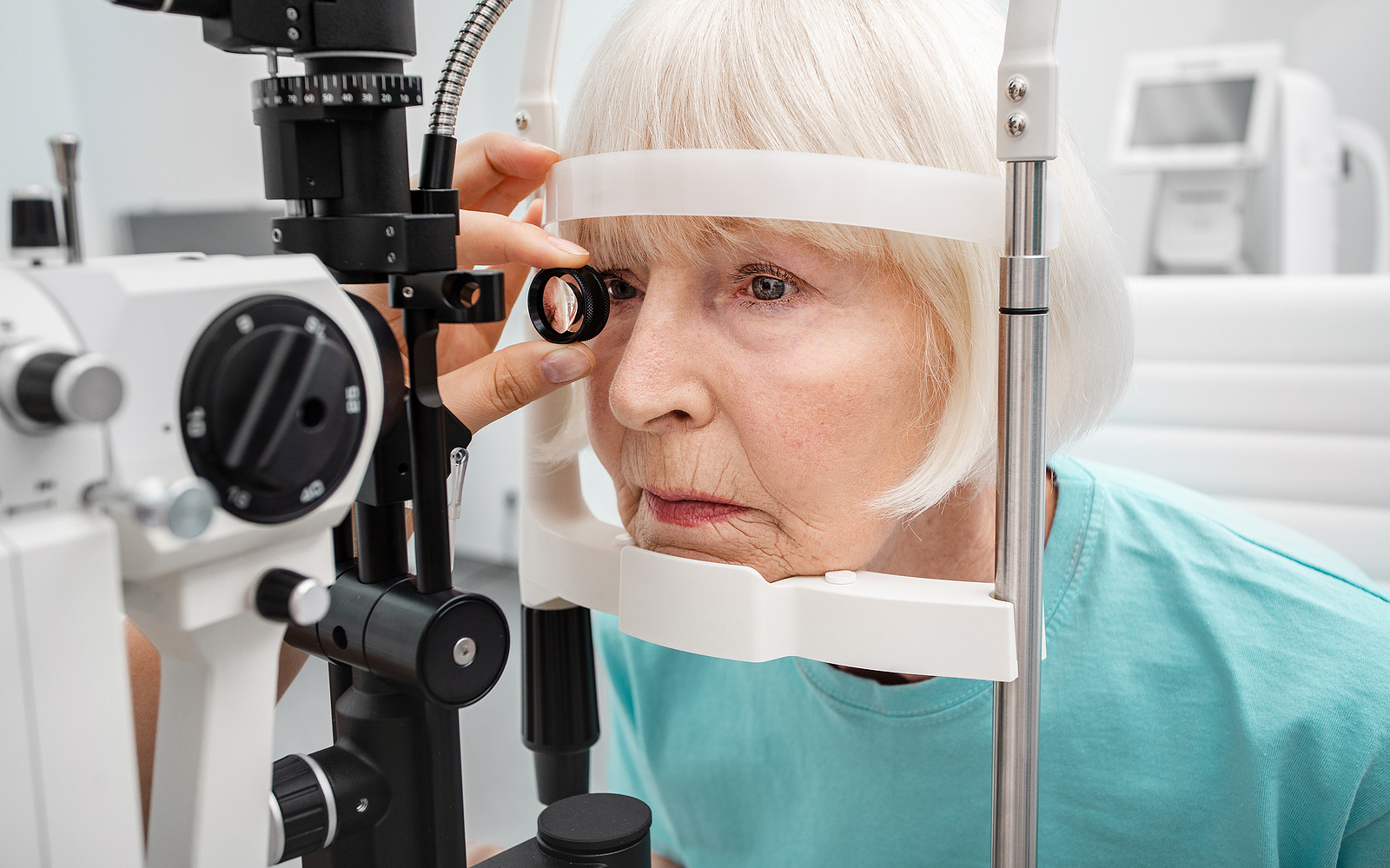What Kind of Doctor Does Cataract Surgery?

Updated: December 17, 2025
The risk of developing eye diseases, such as cataracts, increases as we age. This common condition can impair vision and negatively affect our quality of life. However, an experienced ophthalmologist and cataract surgeon can restore your eye health and vision.
What Are Cataracts?
Cataracts are a major cause of visual impairment worldwide, but they are highly treatable. They develop when proteins inside the eye’s natural lens break down, most often naturally with age, and cause the lens to cloud. This loss of clarity affects how light enters the eye, leading to gradual vision loss. By age 80, about 50% of Americans experience cataracts or have had cataract surgery.
What Is Cataract Surgery?
Once cataracts progress beyond nonsurgical options, an ophthalmologist — most often a cataract specialist — can remove the cloudy lens and replace it with an artificial intraocular lens (IOL) made from acrylic, plastic, or silicone.
Cataract surgery is one of the most commonly performed procedures in the U.S., with more than 3 million surgeries each year and excellent success rates. These outpatient procedures typically take about 20 minutes and allow for quick recovery for most patients.
Wondering if cataract surgery might be right for you? Try our cataract self-test to see if it’s time for a cataract surgery evaluation.
What Is an Ophthalmologist?
Ophthalmologists are medical doctors specializing in the full spectrum of eye care — from routine exams to complex surgeries. Their training includes medical school and surgical training, as well as residency programs and often fellowship training, totaling 12–14 years of preparation. This additional education allows ophthalmologists to diagnose and treat a wider range of eye conditions compared to optometrists and opticians. Som ophthalmologists have sub-specialities in areas such as cataracts, glaucoma, cornea, retina, pediatric eye care, and neuro-ophthalmology, or oculoplastics.
When to Call an Ophthalmologist for Cataract Surgery
Yearly eye exams are essential for monitoring eye health and diagnosing cataracts early. Eye doctors can diagnose cataracts using a combination of tools, including:
- Visual acuity testing
- Slit-lamp examination
- Retinal evaluation
Common Cataract Signs and Symptom
Contact your eye doctor if you begin to experience these symptoms of cataracts.
- Sensitivity to light
- Halos around lights
- Frequent changes in eyeglass prescriptions
- Double vision in one eye
- Cloudy or blurry vision
- Dull or yellowed colors
- Needing brighter lighting to read
- Difficulty with night vision
Why Patients Choose the Cataract Specialists at Swagel Wootton Eye Institute
As a leading ophthalmology practice with more than 60 years of service in the East Valley, Swagel Wootton Eye Institute combines deep community roots with advanced surgical expertise. Our board-certified surgeons use industry-leading technology — including premium cataract lens implants, laser-assisted techniques, and modern diagnostic tools — to support exceptional visual outcomes, and we remain committed to patient-centered care, comfort, and delivering the high-quality results that have defined our practice for decades.
Ready To Improve Your Vision?
Book your cataract consultation and begin your journey toward clearer sight.
Learn more about cataract surgery and the Swagel Wootton Eye Institute experience.
[DISPLAY_ULTIMATE_SOCIAL_ICONS]









